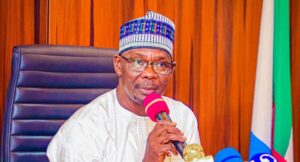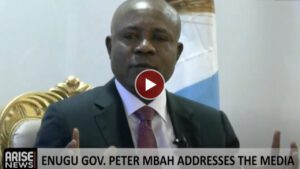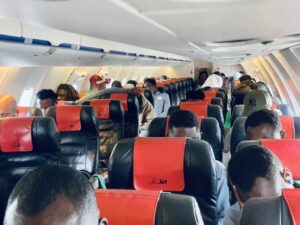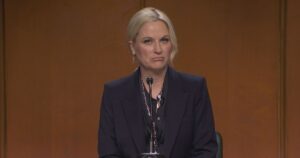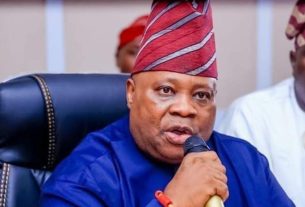“…wa lal-aakhiratu khayrun laka min al-oolaa,” Surah Ad-Duha (93:4),
meaning
“…the Hereafter is better for you than the first [life],”
In the sun-drenched heart of Kano, where the ancient whispers of the Sahel blend with the digital hum of modernity, this Quranic promise of betterment found a vivid earthly echo during the 2025 edition of the Kano Social Influencers Summit (KANSIS). Organized by the visionary Centre for Information Technology and Development (CITAD), the two-day ceaseless flow of ideas commenced on Wednesday October 22, 2025.
Venue was the resplendent Khalifa Isyaku Rabiu University, crafted into acronym KHAIRUN. In Arabic, this means “better.” How serendipitous, how poetic, that this institution should host an event dedicated to harnessing social media for societal upliftment, aligning seamlessly with CITAD’s noble quest to transform Nigeria’s digital landscape into a force for good, equity, and enlightenment. Interestingly, Khairun readily finds a sectoral sibling in the nation’s foremost university, the University of Ilorin, often hailed as “Better by Far University”. UNILORIN attains her golden age of 50 this year.
It was such an all-important, clarion call for a “better” Nigeria where social media and Artificial Intelligence, AI, should cease to be a tool of division thus becoming a bridge to inclusivity and progress.
CITAD as a steadfast guardian of information technology for development, has long championed this vision, using ICTs to empower citizens toward a just, knowledge-based society. This year, 2025, under the luminous theme “Toward a More Inclusive Governance of Artificial Intelligence (AI),” KANSIS rose like a phoenix, addressing the dual-edged sword of technology: its potential to enhance democratic processes and its perils in fostering surveillance, misinformation, and exclusion.
The university itself, KHAIRUN, stands as a testament to this ethos of betterment. Its heavily built campus is a masterpiece of architectural splendor, where modern spires pierce the sky like aspirations unbound, and verdant gardens whisper tales of serenity amid scholarly pursuit. All coated in cool grey-ash colour, buildings of varying grandeur dot the landscape, each a jewel in the crown of Nigerian heritage, named not after fleeting fads but after luminaries who embodied “khairun”. At once, you sense the essence of excellence and benevolence as well as that United Nigeria.
There rises the Basorun MKO Abiola Hall, honoring the winner of Nigeria’s most historic presidential election, a man whose unyielding fight for democracy echoes through the corridors of time. Nearby, the Alhaji Aminu Dantata Complex pays homage to the business tycoon whose entrepreneurial spirit built empires from the sands of commerce. Other edifices bear the names of distinguished Nigerians – philanthropists, scholars, and visionaries – ensuring that the past’s wisdom illuminates the future’s path. This institutional preservation of memory is no accident; it is a deliberate ode to legacy, reminding all who tread these hallowed grounds that true progress is rooted in honoring those who paved the way for the future, obviously in the spirit khairun
Yet, the “khairun” dimension shimmered most brilliantly in the event’s inspiring inclusivity. In a world often marred by barriers, KANSIS 2025 wove a tapestry of unity where physically challenged persons were not mere attendees but integral voices.. Wheelchairs glided alongside eager footsteps, sign language interpreters danced their hands in eloquent harmony with spoken words, and adaptive technologies ensured no one was left in the shadows. This was inclusivity not as tokenism, but as a living, breathing commitment – a reflection of CITAD’s core mission to bridge digital divides and foster a society where every citizen, regardless of ability, can harness technology for empowerment.
The summit’s core pulsed with a critical review of social media’s role in Nigeria, spotlighting select influencers whose digital footprints have focused on public concerns. Yours sincerely reviewed Japheth J. Omojuwa, known across the ether as @Omojuwa, a maestro of advocacy on X (formerly Twitter). With his sharp wit and unyielding commentary, Omojuwa, I noted, has navigated the turbulent seas of Nigerian politics, using his platform to champion transparency and accountability. He leaves no one in doubt about his love for soccer the metaphor of which he also deploys in volunteering comments on otherwise tough political situations.
Similarly, Poet Olumide Olaniyan who doubles as a development expert, examined Rinu Oduala, the indomitable @SavvyRinu, whose fiery spirit supported the #EndSARS movement. As a human rights advocate and community organizer, Oduala, according to Olaniyan, brought helped to give utmost visibility in particular to the alleged Lekki killings and she has not relented till date in advocating for protection of human rights in Nigeria. Olaniyan specifically noted that Rinu has done well, using X platform to inspire younger women to always strive to protect their rights and those of fellow human beings no matter how daunting the situation may be.
The event’s ambitious agenda unfolded like a grand narrative across five plenary sessions and sixteen parallel panels, drawing from the wellsprings of academia, civil society, media, and traditional institutions. Day one dawned with profound explorations of AI’s role in governance, where Dr. Vincent Olatunji, National Commissioner of the Nigeria Data Protection Commission, represented by Jimoh Abdulmalik, delved into the intricacies of data privacy in an AI-driven world. “Algorithms must serve the people, not subjugate them,” he intoned, sparking debates on inclusive policies that mitigate biases against underrepresented groups.
Vivacious son of Professor Jibo Ibrahim, Senior Fellow of Centre for Democracy and Development, CDD, Alhassan Ibrahim’s presentation on “AI, Social Influencing, and Hidden Algorithms” unveiled the not so known machinations of platforms that curate our realities, urging a collective push toward transparency. Meanwhile, Sufian Ibrahim, in partnership with The Mad Train, intertwined mental health with AI, highlighting how digital echo chambers can exacerbate isolation while also offering tools for therapeutic connection. Prof. Asabe Sadiya Mohammed, a stalwart of CITAD’s Governing Board, shared her reflections on past summits, affirming KANSIS as a perennial fountain of knowledge exchange.
Day two crescendoed with profiles of other influencers, including the eloquent Abdulmajid Danbilki Kwamanda, whose Hausa commentaries on Rahama Radio and Vision FM have mobilized Kano’s political landscape. Dan Bello’s satirical skits skewering corruption, RaRaRa’s melodic advocacy through Hausa music, and Rabiu Biyora’s Facebook agitations added layers of cultural richness to the discourse. These sessions, moderated by luminaries like Jibrin Ibrahim, dissected Kano’s vibrant media ecosystem – boasting over 30 FM stations, myriad TV channels, and a legion of online platforms – where “Sojojin Baka” (radio warriors) wield influence akin to ancient griots.
Amid the intellectual fervor, partnerships bloomed like desert roses after rain. The Kano State Government pledged collaboration, echoing CITAD’s call for youth engagement in tech governance. With millions of Nigerians – 38.7 million on Facebook, 7.57 million on X, and 51 million on WhatsApp – navigating this digital realm, the summit’s clarion message was clear: We must reclaim social media from the clutches of propaganda and echo chambers, forging instead a path to verifiable truth and communal harmony.
As the sun set on the second day, casting long shadows, participants departed with hearts aflame and minds enriched.
KANSIS 2025 was more than an event; it was a manifesto for a “khairun” Nigeria. In the spirit of Surah Ad-Duha, this worldly gathering hinted at a better hereafter
The 14-point communique, seven each of observations and resolutions is as explicit as futuristic expressing yet the readiness of CITAD to champion the multi-stakeholder approach to formulating and managing Nigeria of imminent full blown, perhaps AI-saturated Nigeria.


